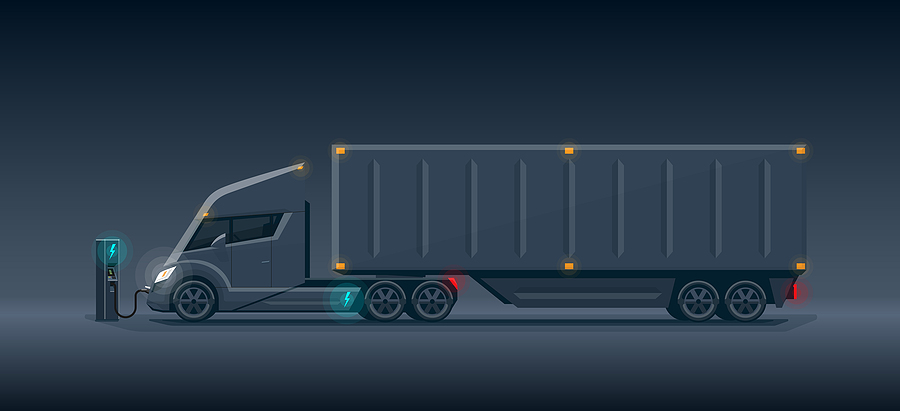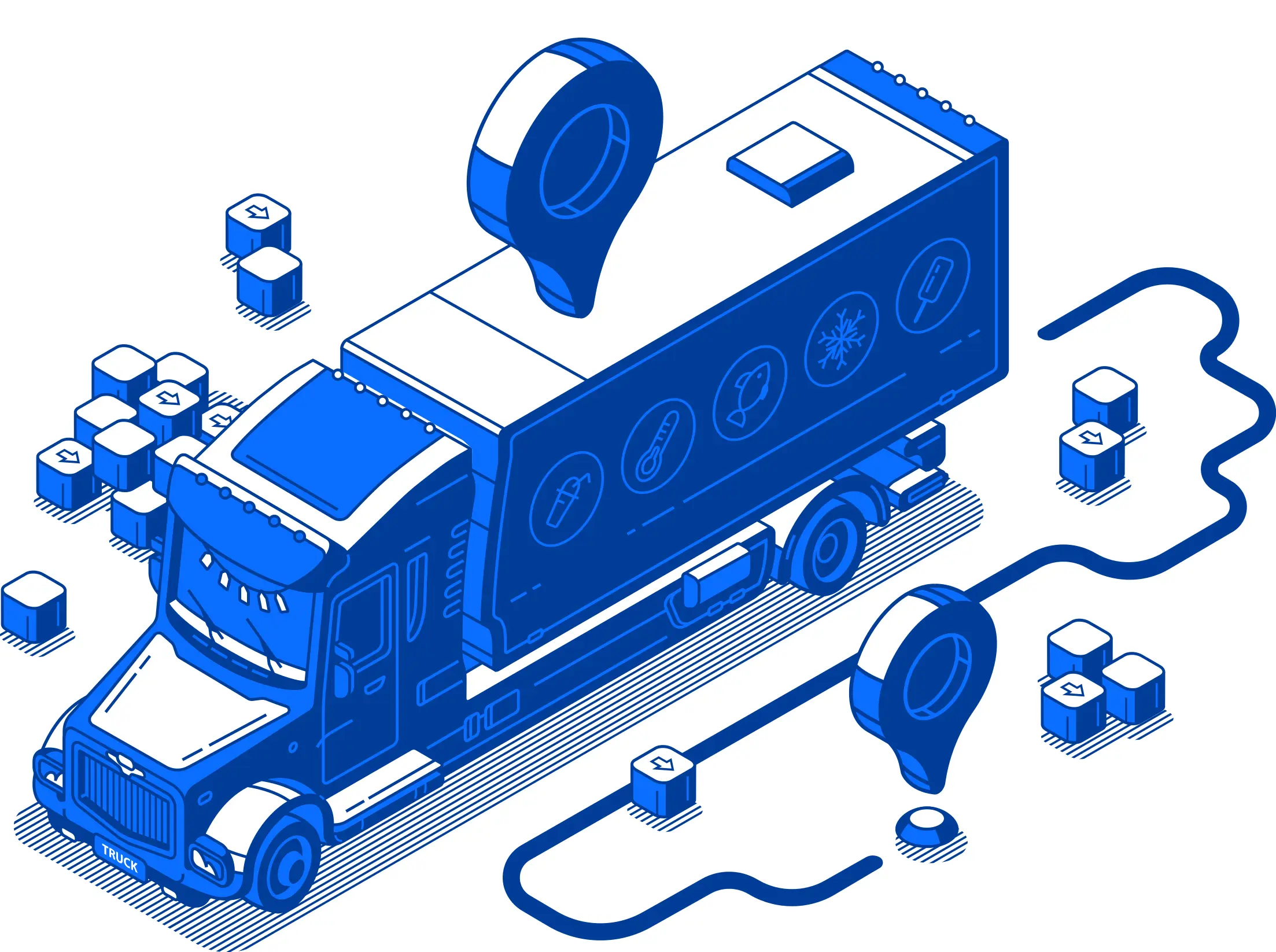While guidance changed and now the rush to convert to electric trucks isn’t quite as urgent, there’s still a pressing need to convert buses, delivery vans, and heavy-duty trucks to EVs. Heavy-duty trucks account for 3% of the trucks on U.S. roads, yet they produce 30% of the carbon dioxide and 86% of nitrogen oxide emissions from road transportation.
Air pollution from diesel truck emissions is linked to preterm births, underweight births, and childhood asthma. Working on ways to bring down those emissions is crucial, but it will lead to changes for drivers. One of them is how freight factoring will change as electric trucks roll out. Take a closer look at the future of freight factoring as electric trucks become the norm.
Electric Trucks Are the Future
During 2024, U.S. trucking companies or owner operators registered 1,381 zero-emission electric heavy-duty trucks, medium-duty trucks, or buses. Even with the deadline for ending production of gas or diesel-powered trucks on hold, electric trucks, buses, and vans are the future. There are still some hurdles to overcome.
- Range/Distance
While light trucks are immensely popular, commercial trucks have grown, but at a slower rate. There were more than 15,000 medium- and heavy-duty trucks on the road in 2024. Some of the hesitancy is the range they get. Long-haul truckers may struggle to find a good spot to recharge the truck’s batteries. Truck drivers who stick to a smaller range benefit from an EV.
In 2022, there were 14,55 single or combination trucks registered in the U.S. Those trucks traveled an average of 66.47 miles per day, making EV a fantastic option for truck drivers. The infrastructure needs to catch up, however, to ensure megawatt-level charging stations are readily available for truck drivers. Once that happens, the shift to EV should noticeably speed up.
- Price
The cost of a new electric heavy-duty truck is still higher than a gas or diesel-powered truck. Rechtien International states the price of a semi with them is around $160,000 with upgrades. An electric truck from Peterbilt costs $350,000. You’re paying twice as much.
But you must consider the yearly savings, too. You’re not having to buy fuel or change engine oil regularly. You do have to charge the trucks, but if there’s a charger at your business, you can usually avoid charging while on the road. Electricity bills increase, but you can add solar and offset that increase easily enough.
As more people use EV charging stations, prices should start to level out. New technology costs more until it’s more mainstream. Meanwhile, you have freight factoring to help you build a strong cash flow as you switch from gas power to electricity.
If you’ve set up a freight factoring arrangement, you can use the same-day payments to pay bills on time and get your savings built up. A solid credit history helps you land a higher credit score. That’s going to work to your benefit when you go to buy a new EV truck and trailer.
A Quick Recap on What Freight Factoring Is and How It Works
Most trucking industry professionals have a basic understanding of freight factoring. It’s a financial service where you sell your invoices for a discounted price. In exchange, the freight factoring company pays you immediately and proceeds to bill your client and collect the money owed. It works like this.
- You haul a load to the destination.
- You send a copy of the bill of lading through the freight factoring app, asking to be paid.
- The factor processes your request by running a business credit check and verifying the rate.
- Payment is sent to your account for immediate use.
There are some intricacies to keep in mind. If your client never pays the invoice, you may be held liable for repayment. This depends on whether you have a recourse (you pay it back) or a non-recourse (the factoring company swallows the loss) arrangement.
You pay a fee for this service, which is why we say you’re selling your invoice at a discount. If the freight factoring fee is 3%, that 3% is deducted from the amount you bill the client. If you delivered a load that was supposed to pay $10,000, the freight factoring fee is deducted from that amount before you’re paid.
Because you control when you’re paid, you avoid the frustration of invoicing a client and then waiting 30, 60, 90, etc. days before the payment arrives in your account.
Changes to Freight Factoring and Your Business When You Switch to Electric Trucks and Vans
Some obvious changes will happen if you switch to an electric truck. Part of a freight factoring arrangement is the fuel discount you get. You save money on every gallon of gas or diesel.
If your truck no longer requires diesel or gas, the gas discount becomes useless. This is an area that freight factoring companies are taking a closer look at. Negotiated charging rates that save money at EV charging stations is a likely alternative.
The technology in an EV is top-of-the-line. Features like 360º camera views, blind spot detection, and lane change correction help you drive safely. A solid driving history with no accidents is going to catch the attention of insurance agents, lowering your insurance rates and making your trucking company appealing to more brokers and shippers.
With load finding boards, your impressive driving history and strong business credit score makes it easier to find work. The switch to an EV may be costly, but it ends up paying off when you consider the safety, elimination of gas or diesel fill-ups, and lack of oil changes.
Is Freight Factoring Right For You?
Is freight factoring right for your needs as you consider a switch to electric trucks? One area where it can help a lot is through the services that come with it. In addition to same-day payments with the industry’s lowest rates, enjoy:
- A 60-day trial to see if it’s the right fit
- A mobile self-service freight factoring app
- Access to low-cost business lines of credit
- Support from professionals in the trucking industry
- Unlimited free credit checks using SJC’s live advanced credit check
Electric trucks bring more than new technology to your job. It is going to impact your finances. When you reevaluate your goals, look at ways to save money on the road, and build a strong cash flow with the help of freight factoring, you’ll do well with the switch.
Saint John Capital is already looking at ways to help you make the most of electric trucks in the upcoming years. Reach out to us to learn more about the different services we offer to ensure you’re building your trucking company’s savings and have the tools needed to manage your company efficiently and effectively.











